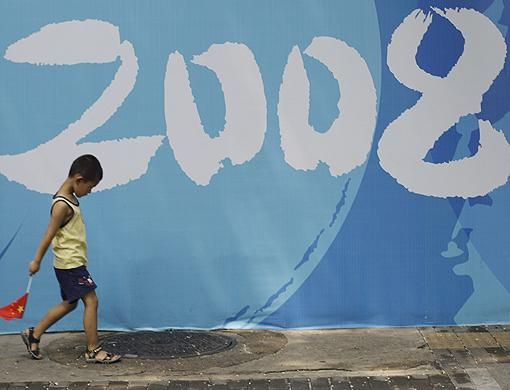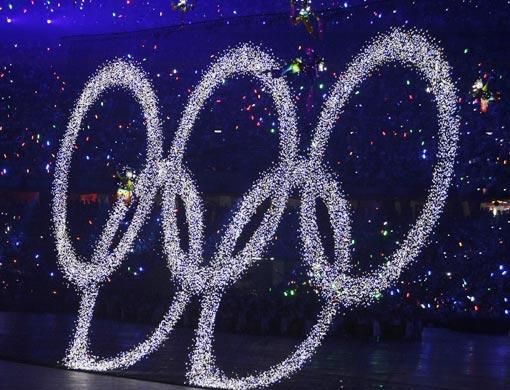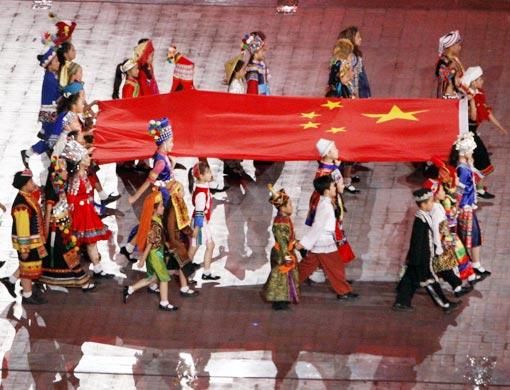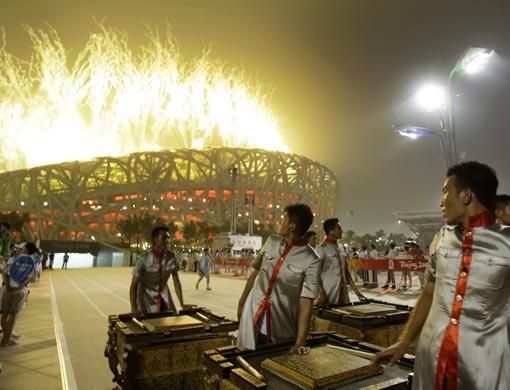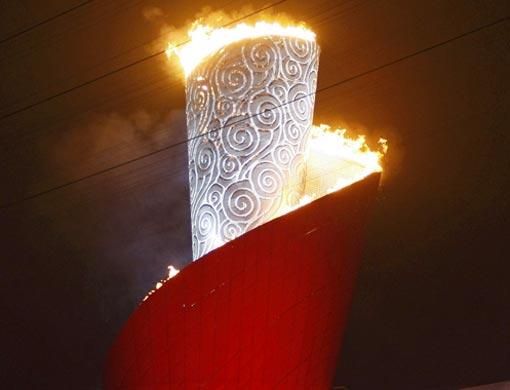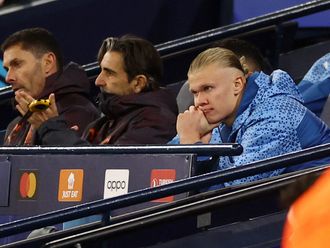Beijing: The Olympic Games, costing an estimated $40 billion and battered by political and environmental concerns , was declared open on Friday as China displayed its credentials as a modern, confident nation.
President Hu Jintao declared the Games open at the 'Bird's Nest' stadium in front of 90,000 spectators and a worldwide television audience of four billion.
"For a long time, China has dreamed of opening its doors and inviting the world's athletes to Beijing for the Olympic Games," said Jacques Rogge, the president of the International Olympic Committee.
"Tonight that dream comes true. Congratulations, Beijing."
Minutes later, the Olympic cauldron was lit by Li Ning, the Chinese gymnast who captured three gold medals at the 1984 Los Angeles Olympics.
A three and a half hour opening ceremony, directed by Oscar-nominated filmmaker Zhang Yimou, featured 5,000 competitors from 204 nations parade in a lavish event, with 35,000 fireworks lighting up a typical, smog-filled Beijing evening.
A tightly-choreographed hour-long sector, shot through with themes from Zhang's signature movies Hero and House of Flying Daggers, portrayed China's colourful history from ancient dynasties to 21st century power.
In a country where eight is a lucky number, the ceremony burst into life at eight minutes past eight on the eighth day of the eighth month.
Befittingly for the world's most populous nation, yesterday's ceremony unleashed wave upon wave of humanity into the arena, revelling in past glories, like the invention of gunpowder, but also more modern triumphs, like putting astronauts into space.
Final hurray
The crowd saved its largest roar of the evening for the entry of the 639-strong Chinese team, which is confidently expected to top the medals table for the first time and was headed onto the field by towering basketball player Yao Ming.
Yao was accompanied by a young boy who survived an earthquake in the southwest of the country in May which killed some 70,000.
As tradition demands, Greece, the home of the ancient Olympics, led the parade of teams into the stadium with judoka Ilias Iliadis carrying his country's flag.
But in a break from that famous tradition, the competing nations then filed through in the order based on the number of strokes of their names as written in Chinese characters.
The United Arab Emirates team were led by Shaikha Maitha Bint Mohammad Al Maktoum, the first woman to lead a Gulf nation at the Games.
Disabled swimmer Natalie du Toit, making history as the first athlete to compete against able-bodied competitors at an Olympics, led the way for South Africa.
The United States were led in by Sudan-born Lopez Lomong, a former refugee from Darfur, in a politically-charged choice given the criticism of Chinese foreign policy over the conflict in the African region.
South and North Korea, who failed to agree on marching in side-by-side, entered separated by three other nations. Tennis legend Roger Federer led the Swiss in on his 27th birthday.
Heads of state
Many heads of state attended the opening ceremony. They included US President George W. Bush and Russian Prime Minister Vladimir Putin, French President Nicolas Sarkozy, Japanese Prime Minister Yasuo Fukuda and South Korean President Lee Myung-Bak.
More than 100,000 security personnel have been called in to police the Games, amid fresh warnings of terror attacks from Islamic separatists while Beijing airport was also shut down just ahead of the start of the ceremony.
The streets were unusually quiet as many of the Chinese capital's 17 million residents stayed at home after the city government declared a public holiday.
The sporting action gets into top gear today with competition underway in 18 disciplines, including swimming and gymnastics, and seven gold medals up for grabs.


